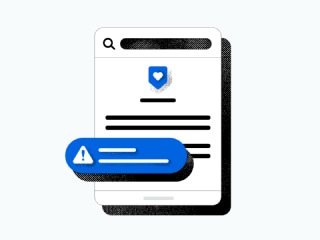- Home
- Transportation
- Yara Debuts World's First Autonomous Electric Container Ship
Yara Debuts World's First Autonomous Electric Container Ship
The Yara Birkeland is set to replace lorry haulage.

The ship will load and offload its cargo, recharge its batteries, and navigate without human involvement
The world's first fully electric and self-steering container ship, owned by fertiliser maker Yara, is preparing to navigate Norway's southern coast and play its part in the country's plans to clean-up its industry.
The Yara Birkeland, an 80-metre-long (87 yards) so-called feeder, is set to replace lorry haulage between Yara's plant in Porsgrunn in southern Norway and its export port in Brevik, about 14 km (8.7 miles) away by road, starting next year.
It will cut 1,000 tonnes of carbon emissions per year, equivalent to 40,000 diesel-powered journeys by road, and is expected to be fully autonomous in two years.
For Yara it means reducing CO2 emissions at its plant in Porsgrunn, one of Norway's single largest sources of CO2, Chief Executive Svein Tore Holsether said.
"Now we have taken this technological leap to show it is possible, and I'm thinking there are so many routes in the world where it is possible to implement the same type of ship," he told Reuters.
Built by Vard Norway, Kongsberg provided key technology including the sensors and integration required for remote and autonomous operations.
"This isn't about replacing the sailors, it's replacing the truck drivers," Yara's Jostein Braaten, project manager for the ship, said at the ship's bridge, which will be removed when the vessel is running at full automation.
The ship will load and offload its cargo, recharge its batteries and also navigate without human involvement.
Sensors will be able to quickly detect and understand objects like kayaks in the water so the ship can decide what action to take to avoid hitting anything, Braaten said.
The system should be an improvement over having a manual system, he added.
"We've taken away the human element, which today is also the cause of many of the accidents we see," Braaten said.
The ship, which will do two journeys per week to start with, has capacity to ship 120 20-foot containers of fertiliser at a time.
It is powered by batteries provided by Swiss Leclanche packing 7 megawatt hours over eight battery rooms, the equivalent of 100 Tesla cars, Braaten said.
© Thomson Reuters 2021
Get your daily dose of tech news, reviews, and insights, in under 80 characters on Gadgets 360 Turbo. Connect with fellow tech lovers on our Forum. Follow us on X, Facebook, WhatsApp, Threads and Google News for instant updates. Catch all the action on our YouTube channel.
Related Stories
- Samsung Galaxy Unpacked 2026
- iPhone 17 Pro Max
- ChatGPT
- iOS 26
- Laptop Under 50000
- Smartwatch Under 10000
- Apple Vision Pro
- Oneplus 12
- OnePlus Nord CE 3 Lite 5G
- iPhone 13
- Xiaomi 14 Pro
- Oppo Find N3
- Tecno Spark Go (2023)
- Realme V30
- Best Phones Under 25000
- Samsung Galaxy S24 Series
- Cryptocurrency
- iQoo 12
- Samsung Galaxy S24 Ultra
- Giottus
- Samsung Galaxy Z Flip 5
- Apple 'Scary Fast'
- Housefull 5
- GoPro Hero 12 Black Review
- Invincible Season 2
- JioGlass
- HD Ready TV
- Latest Mobile Phones
- Compare Phones
- Samsung Galaxy S26+
- Samsung Galaxy S26 Ultra
- Samsung Galaxy S26
- iQOO 15R
- Realme P4 Lite
- Vivo V70
- Vivo V70 Elite
- Google Pixel 10a
- Asus TUF Gaming A14 (2026)
- Lenovo Yoga Slim 7i Aura Edition Gen 10 (14 Inch)
- Infinix Xpad 30E
- Brave Ark 2-in-1
- AI+ Wearbuds
- AI+ NovaWatch Kids 4G
- Xiaomi QLED TV X Pro 75
- Haier H5E Series
- Asus ROG Ally
- Nintendo Switch Lite
- Haier 1.6 Ton 5 Star Inverter Split AC (HSU19G-MZAID5BN-INV)
- Haier 1.6 Ton 5 Star Inverter Split AC (HSU19G-MZAIM5BN-INV)















